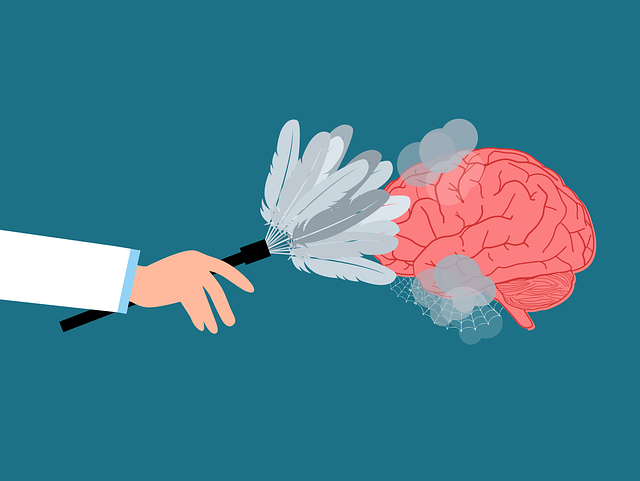Lakewood Divorce Therapy provides a comprehensive guide to navigating emotional challenges and life transitions post-divorce, offering specialized support through counseling, CBT, and mindfulness techniques. They focus on personal growth, resilience, and emotional well-being, helping individuals process feelings, make informed decisions, and build healthier coping mechanisms. Their evidence-based practices, combined with a culturally sensitive approach, empower clients to transform their lives, reduce substance abuse risk factors, and foster long-term mental health wellness.
Substance abuse poses significant risks, impacting both individuals and communities. This article explores effective risk reduction strategies to help navigate the path to recovery. We delve into understanding substance abuse, identifying personal risk factors, and creating a supportive home environment. It’s crucial to explore professional therapy options and build healthy habits for long-term success, such as those offered by Lakewood Divorce Therapy. By implementing these strategies, individuals can minimize risks and embrace a brighter future.
- Understanding Substance Abuse and Its Risks
- Identifying Personal Risk Factors
- Creating a Supportive Environment at Home
- Professional Help and Therapy Options
- Building Healthy Habits for Long-Term Recovery
Understanding Substance Abuse and Its Risks

Identifying Personal Risk Factors

Identifying personal risk factors for substance abuse is a crucial first step in implementing effective risk reduction strategies. This process involves delving into one’s unique circumstances, including emotional vulnerabilities and past experiences. For instance, individuals navigating a divorce or experiencing significant life transitions might be more susceptible to substance misuse as a coping mechanism. Lakewood Divorce Therapy offers specialized support in these situations, focusing on emotional well-being promotion techniques and confidence boosting exercises to build resilience.
Through self-awareness exercises, individuals can uncover underlying triggers that contribute to their vulnerability. By recognizing these factors, whether it’s a history of trauma, low self-esteem, or unresolved emotional pain, one can proactively develop healthier coping mechanisms. This proactive approach, combined with professional guidance from therapists like those at Lakewood Divorce Therapy, empowers individuals to make informed choices and significantly reduce the risk of substance abuse.
Creating a Supportive Environment at Home

Professional Help and Therapy Options

For many individuals struggling with substance abuse, seeking professional help is a pivotal step towards recovery. Lakewood Divorce Therapy offers specialized services tailored to address the unique challenges associated with addiction. Therapists and counselors employ evidence-based practices such as cognitive-behavioral therapy (CBT) and mindfulness techniques like Mind Over Matter principles to empower clients in managing their cravings and triggers. These therapeutic approaches not only help individuals achieve sobriety but also equip them with essential coping strategies for long-term mental health wellness.
Incorporating Cultural Sensitivity in Mental Healthcare Practice is a key aspect of Lakewood Divorce Therapy’s approach, ensuring that care is personalized to meet the diverse needs of every client. Through Mental Health Education Programs Design, individuals gain insights into addiction’s underlying causes and learn effective ways to navigate their recovery journeys. By combining professional therapy options with cultural sensitivity, Lakewood Divorce Therapy fosters an inclusive environment, enhancing the overall effectiveness of risk reduction strategies for substance abuse.
Building Healthy Habits for Long-Term Recovery

Building healthy habits is a cornerstone of long-term recovery from substance abuse. Individuals in Lakewood who seek divorce therapy or other forms of support should focus on cultivating routines that promote well-being and resilience. This includes adopting consistent self-care practices such as regular exercise, adequate sleep, and balanced nutrition. Engaging in activities that foster emotional intelligence, like mindfulness meditation or counseling sessions, can help individuals manage triggers and cope with stress in healthy ways.
By integrating these habits into their daily lives, those recovering from substance abuse can build a strong foundation for resilience against future relapses. Cultivating a positive mindset through positive thinking exercises also plays a significant role. Encouraging thoughts and affirmations can help individuals maintain motivation, boost self-esteem, and create a more optimistic outlook on life—all of which contribute to sustained recovery.
Substance abuse is a complex issue, but with the right strategies, individuals can significantly reduce risks and achieve long-term recovery. By understanding the dangers, identifying personal triggers, and creating supportive environments, people can take proactive steps towards a healthier life. Seeking professional help through therapy and building healthy habits are essential components of this journey. For those in Lakewood, access to specialized services like Lakewood Divorce Therapy offers tailored support, providing hope and tools for overcoming substance abuse and fostering lasting well-being.














